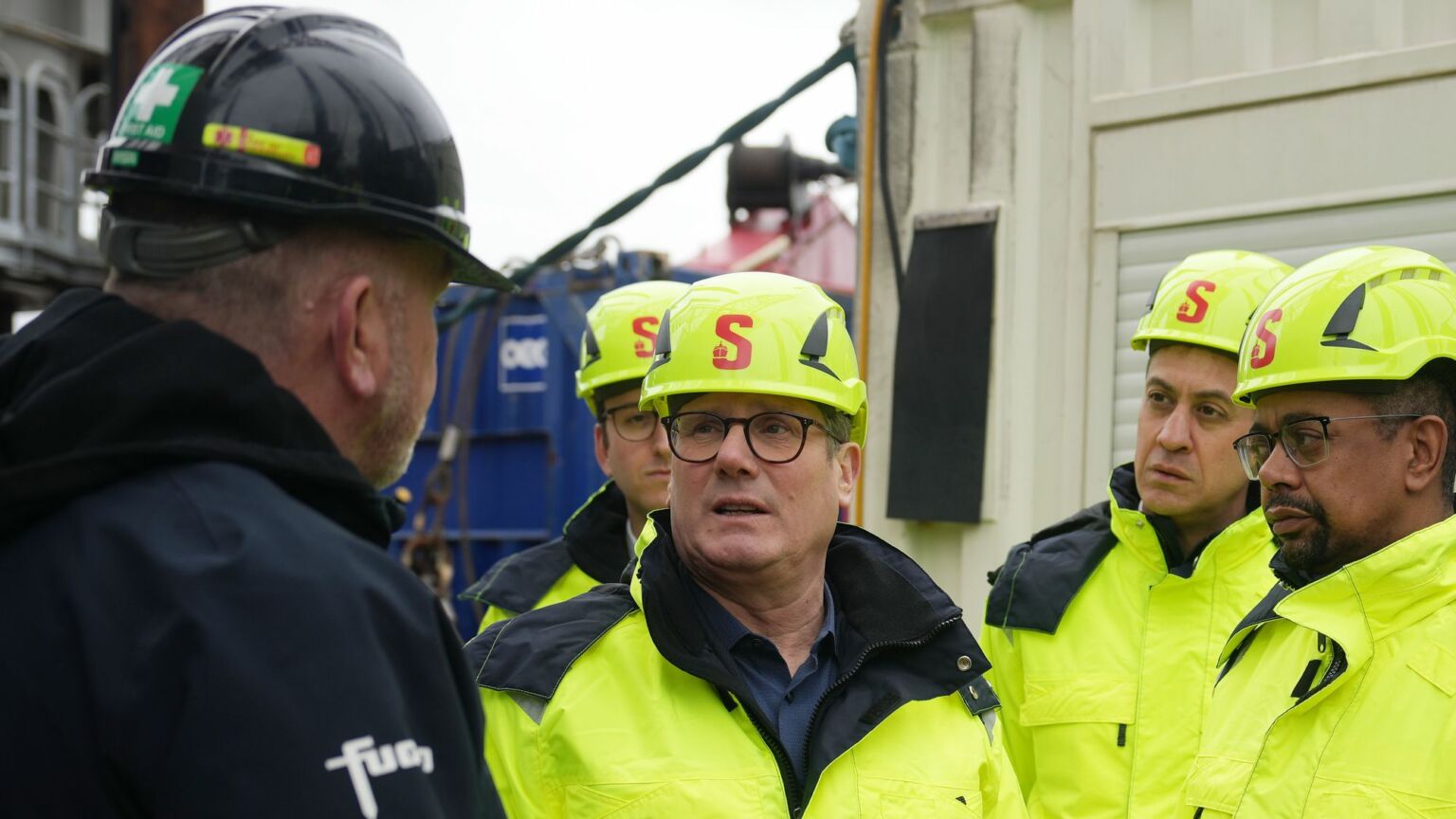“Families and businesses will have lower bills forever.” That is a promise the Labor Party will make to the British public when it comes to power.
One of Labour’s six ‘missions’ for the government is to make Britain a ‘clean energy superpower’ by 2030, investing in wind, solar and carbon capture and energy storage. Great British Energy, a new state-backed investment company, will help finance the replacement of fossil fuels with a carbon-free electricity system. This expansion of renewable energy will not only save the planet, Labor claims, but also give us reliable, ‘homegrown’ energy – and lower prices as a result.
But don’t be misled by this green story. In reality, Labour’s energy policy is a recipe for higher bills and economic misery.
The first hole in Labour’s green transition plan is the lack of the hundreds of billions of pounds of investment needed to fund it. Starmer originally pledged to borrow £28 billion a year to invest in the rollout of renewable energy, but Labor has gradually reduced the amount it is willing to spend even as it maintained its target of achieving a carbon-free electricity grid by 2030.
Labor has now earmarked £8.3 billion for Great British Energy’s investment plans for the next parliament. But to get an idea of how little money this is in the energy sector, consider that the National Grid is setting aside £30 billion to spend over the same period just to retain our current energy infrastructure. If the money for this so-called clean energy revolution isn’t going to have to come from government subsidies, then it’s going to have to come from higher bills.
In any case, despite what Labor claims, a renewables-based network will not reduce costs. Solar panels and wind farms are only becoming more expensive to install, thanks to higher interest rates and rising commodity prices. Even when they are in operation, they do not reduce electricity prices. This is because they are intermittent energy sources. They cannot produce electricity when the wind is not blowing and the sun is not shining. This means they must be supported by more reliable alternatives, such as natural gas or coal. Transferring these fossil fuels into the energy grid in the short term entails enormous additional costs.
You only have to look at renewables-obsessed California to get an idea of how this could play out. Between 2011 and 2017, the cost of installing solar panels in the state fell by 75 percent. But at the same time, electricity prices rose five times faster than the rest of the US, thanks in large part to the intermittent problem. Or take Germany, which has invested more in wind and solar energy than any other country on earth. The so-called EnergiewendeGermany’s policy of phasing out fossil fuels and nuclear power led to a 50 percent increase in electricity prices between 2006 and 2017. This gave Germany the most expensive electricity in Europe, even before the war in Ukraine exposed its overdependence on Russian gas.
Higher bills are not the only risk of Labour’s carbon-free electricity target. The GMB union, which represents half a million workers and is one of Labour’s biggest donors, has warned that Starmer’s “unviable” clean energy mission will lead to “power cuts and blackouts”. At its annual conference last week, it urged Labor to “listen to the advice of the scientists, engineers and energy specialists” and abandon its 2030 pledge. Starmer dismissed these warnings as ‘utter nonsense’.
Labour’s attempt to decarbonise the electricity grid also threatens good-paying jobs and economic growth. In Aberdeen, the heart of the lucrative North Sea oil industry, there are fears that the government’s current 75 percent tax on oil and gas companies – introduced as a temporary measure in 2022 – could lead to the loss of more than 100,000 jobs. While the Tories plan to phase out this tax by the end of the decade, Labor has said it will increase it to 78 percent. It will also revoke investment permits for oil and gas in the North Sea, to accelerate the green transition. Shadow Chancellor Rachel Reeves has been flippant about the risk of job losses. “We don’t want to sustain a declining industry,” she said in Edinburgh this month. But the British oil and gas industry is only going to ‘shrink’ because green-oriented politicians want to tax and regulate it into oblivion.
This is not the first time in recent months that Labor has put its commitment to Net Zero ahead of the livelihoods of working people. The news earlier this year that the Port Talbot steelworks will replace its coal-fired blast furnaces with low-carbon electric arc furnaces, at the cost of almost 3,000 jobs, prompted little more than a shrug from Starmer. Labour’s position appears to be that these jobs are a necessary sacrifice on the road to decarbonising UK steel production. If Labor is unwilling to protect workers from unemployment and deindustrialisation, it’s safe to assume it probably won’t protect us from higher bills and blackouts either. When push comes to shove, Labor will likely pursue Net Zero at all costs.
Ultimately, this Net Zero zeal puts Labor directly at odds with the interests of ordinary working Brits. It risks higher bills, blackouts and major job losses. Keir Starmer’s promise of a clean, green future is a dangerous fantasy.
Thomas Osborne is an editorial assistant at pointed.
For republication information pointed‘s content, a right to reply or to request a correction, please contact the editor-in-chief, Viv Regan.
